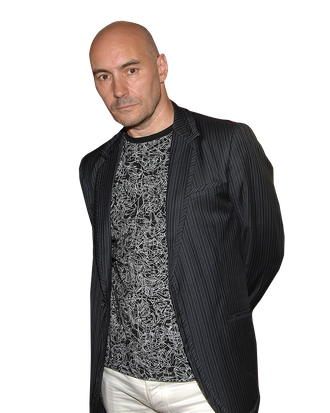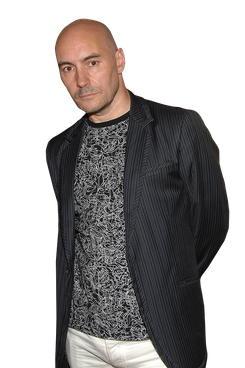

Since the eighties, Grant Morrison has been a titanic figure in comics, working on both creator-owned titles such as The Invisibles, Zenith, and We3, and more familiar industry icons like Superman, Batman, and the X-Men. This week he released Supergods, a 400-page meditation on superheroes and what they tell us about ourselves. In September, heÔÇÖll helm DC ComicsÔÇÖ relaunch of that first and most famous of superheroes, Superman, in Action Comics. Vulture spoke with Grant about the future of his industry, his obsession with Batman, and his gripe with the X-Men.
What is it about superheroes that fascinates you?
They came along when I most needed them. My parents were anti-nuclear activists, so the bomb was a big frightening specter in our household. Then I discovered superhero comics and realized that here was an idea that was bigger than the bomb. Superman can withstand an atom bomb explosion. They literally saved me from the horror of the atom bomb.
Did you do a lot of research for the book?
I didnÔÇÖt want to do that type of book because there had been so many good academic books on the subject. I really just wanted to do it as, ÔÇ£HereÔÇÖs someone whoÔÇÖs absolutely immersed in this stuff. HereÔÇÖs a human story in the middle of all this.ÔÇØ And most of my research was done from stuff that I had on the bookshelf. It was mostly about a kind of personal take on these things.
You split the book into four sections: the Golden Age, Silver Age, the Dark Age, and the Renaissance. Why call the third section, the eighties to early nineties, the Dark Ages?
ThatÔÇÖs kind of the name thatÔÇÖs been used by comic historians, I went along with it because it fit nicely into that structure with the ages. Creators began to ask themselves difficult questions about sexuality, about politics, about why [superheroes] did what they did and what they stood for. Superheroes were psychopaths, villains became more excessive. It was a very creative period, so itÔÇÖs not like the Dark Ages in history when all the lights went out and there were a few monks scribbling for 500 years. I enjoyed it up to a point and then grew very rapidly disenchanted with it. I really liked Alan MooreÔÇÖs Marvelman, which was the first of these types of stories to really make an impact. It was a very logical approach to superhumans. But by the end of Watchmen, I was really tired of it. It wasnÔÇÖt helpful to take ideas that were so positive and reduce them to the gutter. It seemed like a dead end to me. I kind of felt it was more important to try and restore some kind of mythic potency, to make them mean something else to people.
What, exactly?
WeÔÇÖre so starved of Utopian images of where the human race might go, particularly in western culture. Basically we are told that the earth is doomed, the climate is going to collapse, that weÔÇÖre heading for extinction, weÔÇÖre using up the resources. ThereÔÇÖs a very dark and sinister story that weÔÇÖre telling ourselves. But I felt that one of the reasons why superheroes have become so popular again and broken out of the comics and into the mainstream, was because people were so desperately starved of an image of humanity that gave us some hope for the future.
How do you feel about the current state of superhero comics?
Things are going down dramatically every month in superhero comics. The comics themselves are much better written and drawn than theyÔÇÖve ever been, but kids donÔÇÖt really buy them anymore. They can get them for free online. All popular culture is dealing with that. ItÔÇÖs not just comics.
Is there a future for superhero comics?
ItÔÇÖs really quite hard to predict. The way DC Comics are dealing with it right now is to kind of start at ground zero. As of September things are being taken back to number-one issues and being re-created for modern sensibilities. The idea that comics are now backed into a corner is leading to some very interesting and creative solutions for getting out of the corner. Whether there remains a mass-market audience for print is something that the next five and ten years will prove to us.
What is your involvement in the DC relaunch?
IÔÇÖm still doing Batman, as IÔÇÖve been doing for the last six years, and also relaunching Action Comics. WeÔÇÖre rethinking Superman, and the problems that people have had with him recently: Why does he look that way? Why is he so powerful? HeÔÇÖs unrelatable. We want to go back to what originally drove Superman. He was created in the Depression to be a champion to the oppressed. WeÔÇÖre in a different kind of depression now and I think to put Superman back in that place ÔÇö to make him very much a champion of the oppressed, the underdog and an outlaw rather than a patriot figure or someone who works with the police ÔÇö thatÔÇÖs what we want to do. To bring him back to his roots.
YouÔÇÖve worked on many established characters but also created some of your own. Do you prefer working on originals?
I think obviously creating your own stuff has a kind of special thrill, because youÔÇÖre drawing directly on your own imagination. But thereÔÇÖs something very interesting to work as part of an immense chain of artisans who have been creating this stuff for so long.
So you donÔÇÖt find working on someone elseÔÇÖs characters stifling?
IÔÇÖve never felt that at all. The way I look at it is almost like aboriginal art. Every generation of aboriginal artist comes in and repaints the mess and they put their hands up and they spray over them and they draw the circles on the rainbow serpent. I really feel as if thatÔÇÖs what IÔÇÖm getting to do, is to come in as this generationÔÇÖs representative and repaint the cave walls.
YouÔÇÖve had the opportunity to work on nearly every major superhero. What have you enjoyed working on the most and what was the biggest challenge?
The one that IÔÇÖve enjoyed most is Batman, which IÔÇÖve spent a lot more time on than I ever imagined. The X-Men, which were interesting to write, were slightly unpleasant. TheyÔÇÖre so angsty. I found myself constantly having to write reasons for people to fall out or be angry at one another. It was quite stressful. ThereÔÇÖs always something awful going on in their lives. I donÔÇÖt quite get that with Batman; IÔÇÖm allowed to play with something a little purer.
With the exception of the X-Men, youÔÇÖve primarily written DC superheroes. Is there a reason?
I always preferred the DC characters. They always seemed closer in spirit to the pantheon and gods of various cultures. They were very pure. Batman is Hades or Pluto or any of these underworld gods. Aquaman is Neptune. The Marvel stuff, theyÔÇÖre kind of heroes with problems, which never really appealed to me. I liked heroes with no problems because it was harder to imagine a human being who had no problems and who really only wanted to help others.
Are you still able to read comics as a fan?
Yeah, as a very uncritical fan. I read comics in the bath and I pretty much love all of them. I may read them out of the bath and be like, that one wasnÔÇÖt as good as I thought it was. But I usually think everything is great.

